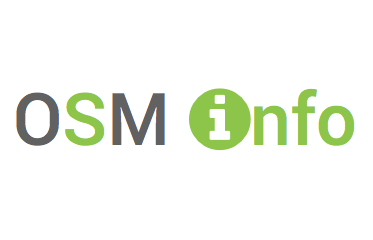Small business support during the coronavirus pandemic

The latest information to businesses and employers with respect to COVID-19 has been kindly summarised by Otter Financial
In recent days, the Chancellor has announced a range of measures designed to support business through this unprecedented period.
With thousands of small and medium-sized business likely to be affected by the fact that GDP has all but stopped, the government have stepped in quickly to offer a package of help to companies likely to be hit hard by the nationwide lockdown.
If you’re a small business owner, there is help available from the government – and beyond. Here’s a summary of the support on offer.
Business Interruption Loan Scheme
A new Coronavirus Business Interruption Loan Scheme will see banks offer loans of up to £5 million to support small and medium-sized businesses, with no interest due for the first six months.
A new Coronavirus Business Interruption Loan Scheme will see banks offer loans of up to £5 million to support small and medium-sized businesses, with no interest due for the first six months.
The business loan scheme will be delivered by the British Business Bank and you can access the loans through your high street bank. Contact them and request a government-backed business interruption loan.
To be eligible for a business interruption loan you must:
- Be based in the UK
- Have an annual turnover of less than £41 million
- Operate within an eligible industrial sector (a small number of industrial sectors are not eligible for support)
- Have a sound borrowing proposal but have inadequate security to meet a lender’s normal requirements
- Have filed any accounts and tax returns due (even if your tax is not necessarily fully paid)
- Be able to confirm that you have not received other public support of de minimis state aid beyond €200,000 equivalent over the previous three years.
A refund of Statutory Sick Pay
If you are a business with fewer than 250 employees (at 28 February 2020), you can reclaim the cost of any Statutory Sick Pay (SSP) caused by the coronavirus, up to a limit of 14 days per individual. The government will refund the cost of this to you.
If you are a business with fewer than 250 employees (at 28 February 2020), you can reclaim the cost of any Statutory Sick Pay (SSP) caused by the coronavirus, up to a limit of 14 days per individual. The government will refund the cost of this to you.
In order to be eligible for the changes to Statutory Sick Pay, you must keep records of the employee’s absence and SSP payments. Bear in mind that the employee will not need to provide a doctor’s note.
Business rates support
If you have a business in the retail, hospitality or leisure sector with a rateable value of less than £51,000 then you will be eligible for a £25,000 cash grant from the government. These will be made through your local authority and you should contact them for details.
If you have a business in the retail, hospitality or leisure sector with a rateable value of less than £51,000 then you will be eligible for a £25,000 cash grant from the government. These will be made through your local authority and you should contact them for details.
Additionally, business rate holidays will be extended to all firms in these sectors. This means that all retail, leisure and hospitality companies will be exempt from business rates for the 2020/2021 tax year.
In the Budget, the Chancellor announced a £3,000 grant for businesses that qualify for Small Business Rate Relief or Rural Rate Relief. This has subsequently been increased to £10,000. This will be administered by the local authority from early April and, if you’re eligible, you will be contacted directly. You will not need to apply for this grant.
Extending ‘time to pay’ arrangements
HMRC have agreed that they will extend ‘time to pay’ arrangements for companies affected by the coronavirus.
HMRC have agreed that they will extend ‘time to pay’ arrangements for companies affected by the coronavirus.
These arrangements are negotiated on an individual basis between businesses and the Treasury, which means debt collection is suspended if a business cannot afford to pay its tax bill. HMRC have said that, during the coronavirus pandemic, the usual 3.5% annual interest on deferred tax payments will be scrapped.
An Employment Support Package
The Treasury has committed to working with business groups to develop an Employment Support Package that will help to mitigate employment costs for small firms, thereby preventing redundancies.
The Treasury has committed to working with business groups to develop an Employment Support Package that will help to mitigate employment costs for small firms, thereby preventing redundancies.
Mike Cherry, national chairman of the Federation of Small Businesses, said: “Clearly small employers will need a huge amount of support to keep staff on their books at this hugely difficult time, so it was good to hear the Chancellor pledging to develop an Employment Support Package to help make that possible.
“We will be working together with the government to ensure the employment package provides for the self-employed.”
Claiming on insurance
Businesses that have insurance cover for both pandemics and government-ordered closure should be covered. The government and insurance industry confirmed on 17th March 2020 that advice to avoid pubs, theatres, cinemas etc. is sufficient to make a claim.
Businesses that have insurance cover for both pandemics and government-ordered closure should be covered. The government and insurance industry confirmed on 17th March 2020 that advice to avoid pubs, theatres, cinemas etc. is sufficient to make a claim.
Insurance policies differ significantly, so you should check the terms and conditions of your specific policy and contact your provider. Most businesses are unlikely to be covered, as standard business interruption insurance policies are dependent on damage to property and will exclude pandemics.
Postponement of IR35 rule changes
To support the self-employed and sub-contractor community, the government have announced a delay to the introduction of the IR35 legislation for the private sector.
To support the self-employed and sub-contractor community, the government have announced a delay to the introduction of the IR35 legislation for the private sector.
This was due to come into force from April 2020, but this has now been delayed until April 2021. It is hoped that the delay to the introduction of this legislation will provide much-needed assistance to sub-contractors during this period.
Other support
Facebook for Business grants
In recent days, Facebook have announced that they will also be providing cash grants to help small businesses. The social media giant is offering $100 million in cash grants and ad credits ‘to help during this challenging time.’
Facebook for Business grants
In recent days, Facebook have announced that they will also be providing cash grants to help small businesses. The social media giant is offering $100 million in cash grants and ad credits ‘to help during this challenging time.’
Facebook aim to support up to 30,000 eligible small businesses in more than 30 countries where they operate. More details will be revealed in the coming weeks, but you can sign up to receive more information when it becomes available.
Get in touch
If you need any further advice during these unprecedented times then please do get in touch with them via email enquiries@otterfinancial.co.uk or call 01404 815551
For more information please visit https://otterfinancial.co.uk/
Search
Recent Posts

Road closure information for...
Carnival Procession Night, Saturday 21st October Road Closure...

Christmas light switch on 2023
Details of the Festive Cheer event taking place on November 24th. Information...


